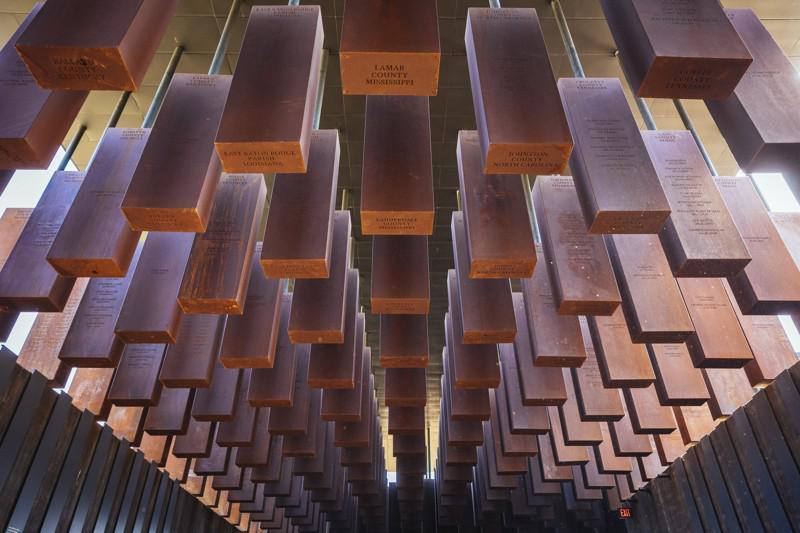Section Branding
Header Content
Text For DeKalb Lynching Memorial Approved By County Officials
Primary Content
Language for a lynching memorial to be erected in DeKalb County was approved Tuesday by county commissioners.
In January, commissioners voted to place a marker in front of the county’s courthouse in Decatur.
"Between 1877 and 1950, racial terror lynching’s of African Americans by white mobs in DeKalb County created a climate and legacy of violence and injustice that has not been previously acknowledged in DeKalb County,” Commissioner Larry Johnson read at their meeting.
That is the opening to the two-sided text that will be placed on the memorial once it’s completed.
DeKalb's NAACP branch and Montgomery, Alabama-based Equal Justice Initiative are working in conjunction to design and build the memorial.
According to the Equal Justice Initiative, nearly 600 Georgians were lynched between 1877 and 1950, with three of those happening in DeKalb. Fulton County leads the state with 37 lynchings.
The marker is expected to be unveiled next spring. It’s part of a Remembrance Project the county’s NAACP group has been instrumental in.
“We’re getting them as symbolically close to justice after death as we can,” DeKalb County NAACP member D.E. Smith said of DeKalb’s known lynching victims. That was reported by the Associated Press in January.
The full language of the text for the memorial is below:
Side 1:
Lynching in DeKalb County
“Between 1877 and 1950, racial terror lynching’s of African Americans by white mobs in DeKalb County created a climate and legacy of violence and injustice that has not been previously acknowledged in DeKalb County. On July 26, 1887, a black man named Reuben Hudson, Jr. was riding on a Georgia Railroad train when a conductor claimed that he resembled a man accused of assaulting a white woman in Redan. After the conductor turned Mr. Hudson over to local officers. He was forced to go to Redan the following day, denied a trial, seized by a mob of 100 white men and hanged from a tree. On April 3, 1892, two unknown black men disappeared near Lithonia after they were accused of assaulting a white girl and were pursued by a mob. Newspaper coverage was wide but sparse and did not include their names. The newspapers reported that when the mob returned without the men, it was "generally understood that they were lynched." On August 21, 1945, Porter Turner, a black taxi driver who served white passengers, was found stabbed to death on the lawn of a physician in Druid Hills. Officials assumed the motive was robbery. However, almost a year later, an informant revealed that members of the Kavalier Klub — a branch of the Georgia Ku Klux Klan — were responsible for his death. Each of these lynchings terrorized the black community, and the perpetrators of these lawless acts were not held accountable. Memorializing these known and unknown victims reminds us to remain persistent and diligent in the pursuit of justice for all.”
Side 2:
Lynching in America
"Following the Civil War, violent resistance to rights for African Americans, a need for cheap labor and an ideology of white supremacy led to fatal violence against black women, men, and children. Thousands of black people were the victims of racial terror lynching in the United States between 1877 and 1950. Lynching emerged as the most public and notorious form of racial terrorism and violence, intended to intimidate black people and enforce racial hierarchy and segregation. Many African Americans were lynched following accusations of violating social customs, engaging in interracial relationships, or committing crimes, even when there was no evidence tying the accused to any offense African Americans accused of these alleged offenses often faced hostile suspicion and a presumption of guilt that made them vulnerable to mob violence and lynching. White mobs regularly displayed complete disregard for the legal system, seizing their victims from jails, prisons, courtrooms, or out of police hands without fear of legal repercussions. Racial terror lynching’s often included burnings and mutilation, sometimes in front of crowds numbering in the thousands. In many cases, the names of lynching victims were not recorded, revealing the indifference towards the injustices committed against them. Although many victims of racial terror lynching will never be known, at least 592 racial terror lynching’s have been documented in Georgia."

